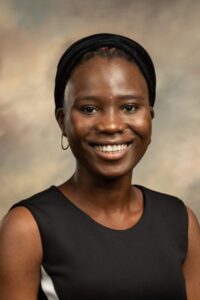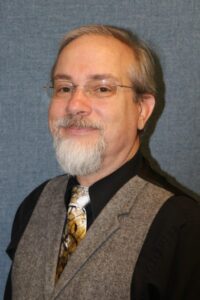Scholarships and Funds
To apply for scholarships, current students can log in to MyGeorgiaSouthern and click the MyScholarships link. For more information, visit GeorgiaSouthern.edu/Scholarships.
Below are summaries of the scholarships offered by the School of Earth, Environment, and Sustainability.
The Jim and Susan Darrell Environmental Sciences Scholarship was established by the Department of Geology and Geography (now SEES – Geosciences) at Georgia Southern University. It honors the career and services of geology professor James Darrell and his beloved wife Susan. The purpose of the scholarship is to provide a means by which outstanding undergraduate students majoring in geosciences or a related environmental sciences field and who have demonstrated interest in environmental sustainability can be recruited, recognized and assisted. Criteria for selection include:
- Strength of interest in the discipline of environmental sciences
- Full-time enrollment as a geology major or related environmental sciences field
- Completion of at least 24 semester hours of academic credit (15 hours at Georgia Southern) with a minimum of unadjusted GPA of 3.0
- Completion of at least 8 semester hours of credit in geology with a minimum geology GPA of 3.0 including completion of GEOL 1340 with an A or B grade.
- Personal character
- Involvement in student activities will be considered, although this is optional
- Recipient will be announced in May. Recipient must attend Georgia Southern the Fall and Spring semesters following the award announcement in May to be eligible for the scholarship.
- Darrell Scholarship Requirements
Apply at http://georgiasouthern.scholarshipuniverse.com/. Search for keyword “Darrell.”
Application deadline is February 1, 2026.
The H. Stanley Hanson Geology Scholarship was established by the Department of Geology and Geography (now SEES – Geosciences) at Georgia Southern University. It honors the career and services of former Department Head, H. Stanley Hanson. The purpose of the scholarship is to provide a means by which outstanding geology majors can be recruited, recognized and assisted. Criteria for selection include:
- Strength of interest in the discipline of geology
- Full-time enrollment as a Geology major in the BS, BA, and BSED with a major in geology programs
- Completion of at least 50 semester hours of academic credit (30 hours at Georgia Southern) with a minimum of unadjusted GPA of 3.0
- Completion of at least 10 semester hours of credit in geology with a minimum geology GPA of 3.0
- Personal character
- Involvement in student activities will be considered, although this is optional
- Recipient will be announced in May. Recipient must attend Georgia Southern the Fall and Spring semesters following the award announcement in May to be eligible for the scholarship.
- Hanson Scholarship Requirements
Apply at http://georgiasouthern.scholarshipuniverse.com/. Search for keyword “Hanson.”
Application deadline is February 1, 2026.
The scholarship was established in 1997 by Dr. Daniel Good, a professor of geography at Georgia Southern University who began his distinguished teaching career at the institution in 1969. Dr. Good received a BA from Emory and Henry College, and he received an MS and a PhD from the University of Tennessee.
- The Daniel B. Good Geography Scholarship is awarded to a full time geography major at the time of application and must maintain full time enrollment throughout the award period.
- Student must have a genuine interest in geography and have completed at least 50 hours of academic credits with at least 30 of those hours coming from Georgia Southern.
- The student must have completed at least 10 semester hours of credit in geography and have a minimum cumulative GPA of 3.0 in both total hours and geography hours.
- Recipient will be announced in May. Recipient must attend Georgia Southern the Fall and Spring semesters following the award announcement in May to be eligible for the scholarship.
- Good Scholarship Requirements
Apply at http://georgiasouthern.scholarshipuniverse.com/. Search for keyword “Dan Good.”
Application deadline is February 1, 2026.
This fund was established by Department alumni Amy Semratedu and Mehmet Samiratedu in honor of Ahmet Semratedu, the late husband of Amy and the brother of Mehmet. The fund was established to support research activities conducted by undergraduate geoscience majors. Applications of the fund include field support, purchase of equipment or supplies used in research conducted in the field or lab, travel to and from a field site, and presentation of research at conferences.
Funds provided are generally between $100 and $500 depending on fund availability and the number of requests.
Apply at http://georgiasouthern.scholarshipuniverse.com/. Search for keyword “Semratedu.” Applications should be approved by the research advisor before submitting.
Applications are accepted year-round.
The Field Camp Fund was established by the faculty of the Department of Geology and Geography (now SEES – Geosciences) at Georgia Southern University to provide stipends for selected geology majors who are participating in a field camp. Criteria for selection include:
- Student must have a minimum geology GPA of 3.0
- Student must be accepted for a field camp in the upcoming summer
- Student must have completed Structural Geology (GEOL 5440)
Please submit application forms to Dr. Vance (rkvance@georgiasouthern.edu).
Application deadline is April 15, 2026.
Funding Opportunities for Student Travel
Graduate Student Travel – Graduate Student Organization
$625 max for travel related expenses
Must be enrolled as a degree seeking graduate student
Undergraduate Student Travel – Office of Research
Students must be an undergraduate and enrolled continuously before and during the time of award and travel; if the student is a senior, travel must be completed within three months of graduation.
The primary research mentor must be a GA Southern faculty member.
Up to $1500 max
Facilities
The School of Earth, Environment, and Sustainability (SEES) has access to 18 research laboratory facilities, both on-campus (Statesboro and Savannah). These laboratories include 3 paleontology/paleobotany labs, 3 mineralogy and x-ray labs, 2 hydrogeology-geochemistry labs, 2 petrology (rock) and sediment labs, 1 structural geology lab, 1 coastal geology lab, 1 forest ecohydrology lab, 1 coastal marsh lab, and 4 geospatial information systems (GIS) labs.
As SEES leads University-wide efforts in GIS teaching, research and outreach services, we have an Earth Science Computer Applications Lab (ESCAL) with 39 computers (33 PCs and 6 iMacs) equipped with ESRI’s ArcGIS suite of geospatial processing programs, statistical software packages (R, SPSS, and SAS-based JMP), databasing software, and the full Microsoft Office Application software.
We also maintain a community geography laboratory with 4 PCs for undergraduate geography students.
Instrument resources in support of GIS activities
- Trimble R8 Base Station and rover kit and R6 TYK Global Positioning Systems (GPS)
- 1 LIDAR VZ1000 3D-imaging sensor
- 2 high-resolution single beam echosounders
- 1 Edgetech 4600 bathymetric sonar system
- HYSP VNIRE-1600 hyperspectral camera.
- For map plotting needs, ESCAL houses an HP Z6100 wide-format plotter which can print maps, presentations and documents up to 60 inches wide.
- ESCAL also houses a wide format, high resolution scanner.
Geological support equipment
- Tractor-mounted Geo-Probe
- 2 four-seat John Deere Gators
- Geoexplorer ground penetrating radar
- Overhauser gradiometer
- Vibracore system
- Bruker portable X-ray fluorescence analyzer
- X-ray diffraction unit
Hydrogeologic and geochemical support equipment
- Dionex Aquion ion chromatograph
- Barnsted E-Pure deionized water system
- Astra 5-km distributed temperature sensing unit
- SuperSting R8/IP Marine Resistivity/IP Meter
- YSI EXO-1 multiparameter sonde
- Radium Delayed Coincidence Counter (RaDeCC)
- Picarro L2130-I Spectrometer
- RAD-7 Radon in air detector
- Opti-Sciences automated soil CO2 flux system



